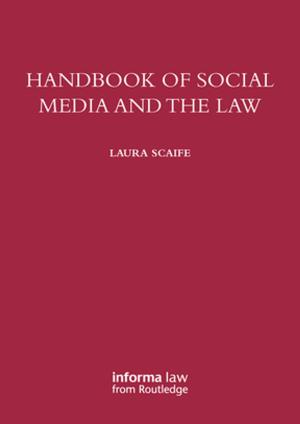Addiction and Brain Damage
Nonfiction, Health & Well Being, Psychology, Addictions, Neuropsychology, Clinical Psychology| Author: | ISBN: | 9781315454030 | |
| Publisher: | Taylor and Francis | Publication: | October 14, 2016 |
| Imprint: | Routledge | Language: | English |
| Author: | |
| ISBN: | 9781315454030 |
| Publisher: | Taylor and Francis |
| Publication: | October 14, 2016 |
| Imprint: | Routledge |
| Language: | English |
Originally published in 1980, recent research had produced new insights into how, at the biochemical level, alcohol and other drugs of abuse can impair metabolic and neuropsychiatric functions. Epidemiological studies were also demonstrating that even moderate drinking or drug abuse can produce significant brain damage.
This book draws together the latest biochemical, physiological and clinical research on these topics at the time. The initial chapters discuss how alcohol can interfere with various functions: the adaptability of metabolic processes as governed by the ability of the liver to synthesise new enzymes, cell membrane transport, nervous transmission and the transport of nutrients into the brain. It is suggested that opiates, and possibly alcohol, may affect the endorphin system by blocking the uptake of specific amino acids.
The second half of the book reports clinical investigations using biochemical studies, psychological tests, EEG investigations and Computerised Axial Tomography (CAT) scanning. It gives the first report of a long-term study by Lishman and co-workers using an improved tomography technique to assess brain damage in alcoholics. These studies give convincing evidence that heavy drinking, even at socially-acceptable levels, can cause serious brain damage in vulnerable people.
Originally published in 1980, recent research had produced new insights into how, at the biochemical level, alcohol and other drugs of abuse can impair metabolic and neuropsychiatric functions. Epidemiological studies were also demonstrating that even moderate drinking or drug abuse can produce significant brain damage.
This book draws together the latest biochemical, physiological and clinical research on these topics at the time. The initial chapters discuss how alcohol can interfere with various functions: the adaptability of metabolic processes as governed by the ability of the liver to synthesise new enzymes, cell membrane transport, nervous transmission and the transport of nutrients into the brain. It is suggested that opiates, and possibly alcohol, may affect the endorphin system by blocking the uptake of specific amino acids.
The second half of the book reports clinical investigations using biochemical studies, psychological tests, EEG investigations and Computerised Axial Tomography (CAT) scanning. It gives the first report of a long-term study by Lishman and co-workers using an improved tomography technique to assess brain damage in alcoholics. These studies give convincing evidence that heavy drinking, even at socially-acceptable levels, can cause serious brain damage in vulnerable people.















